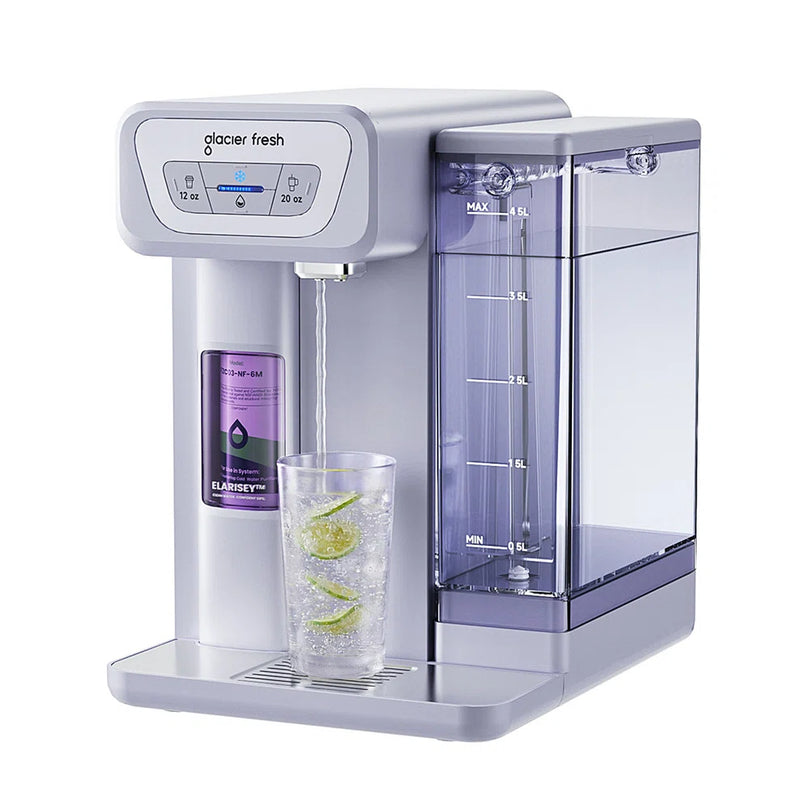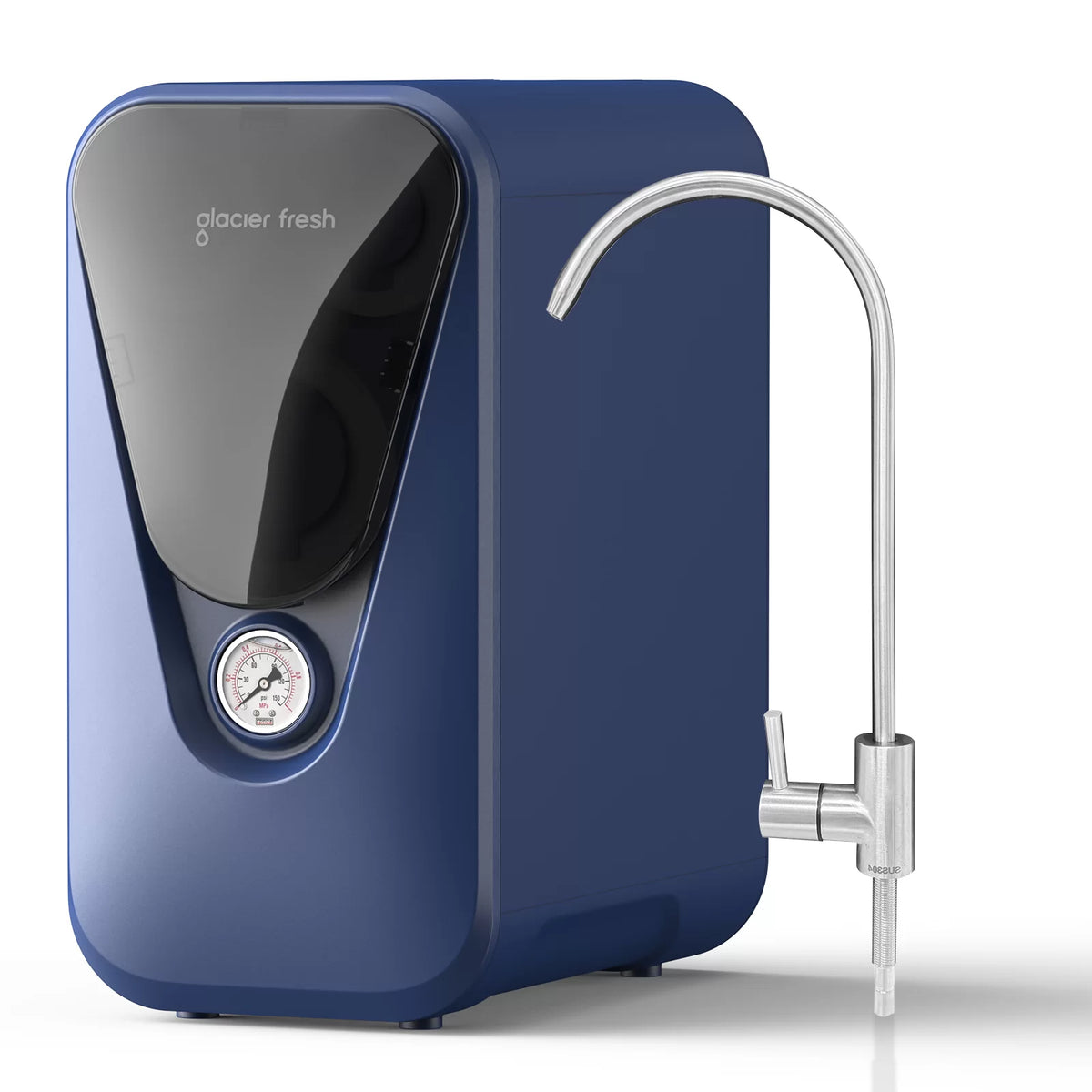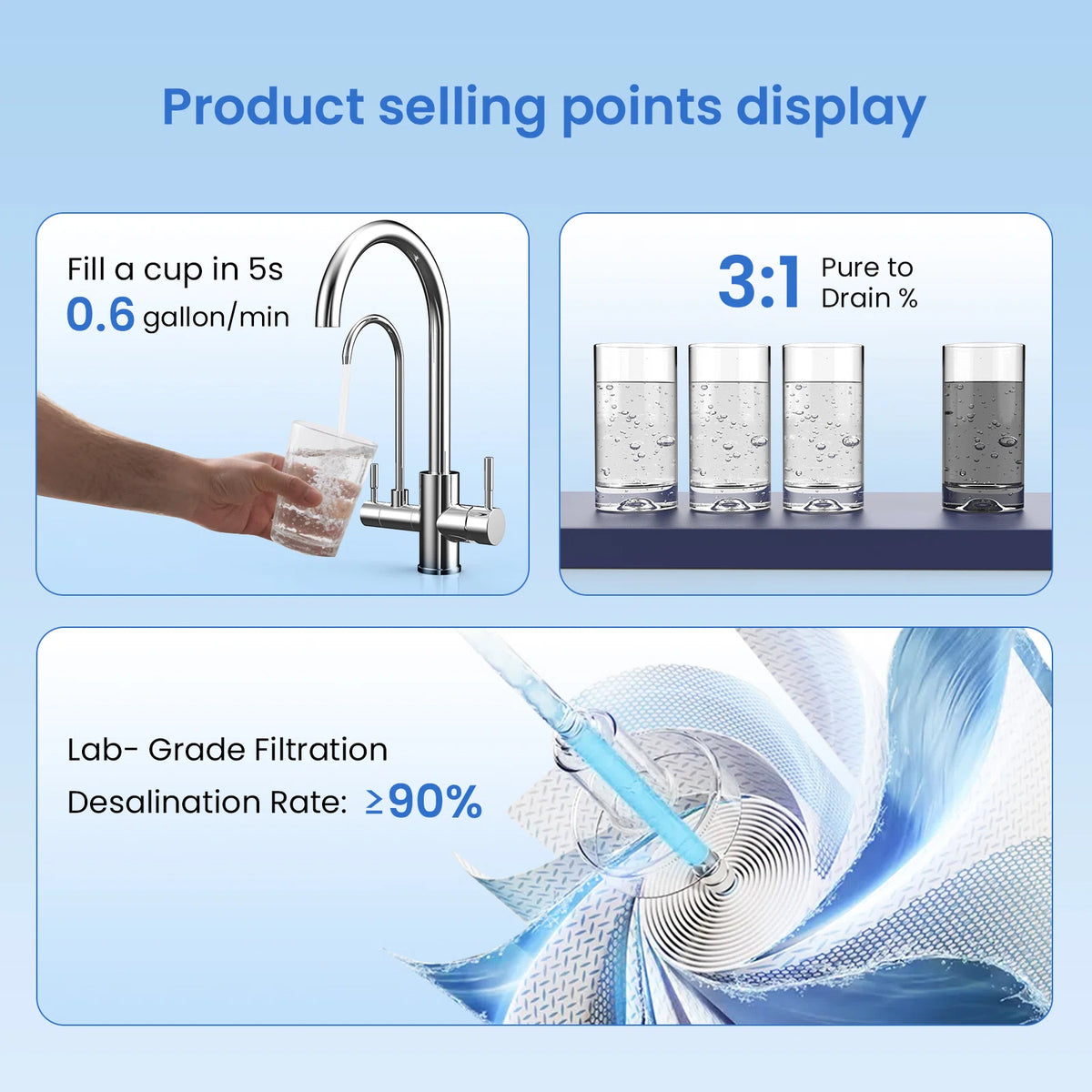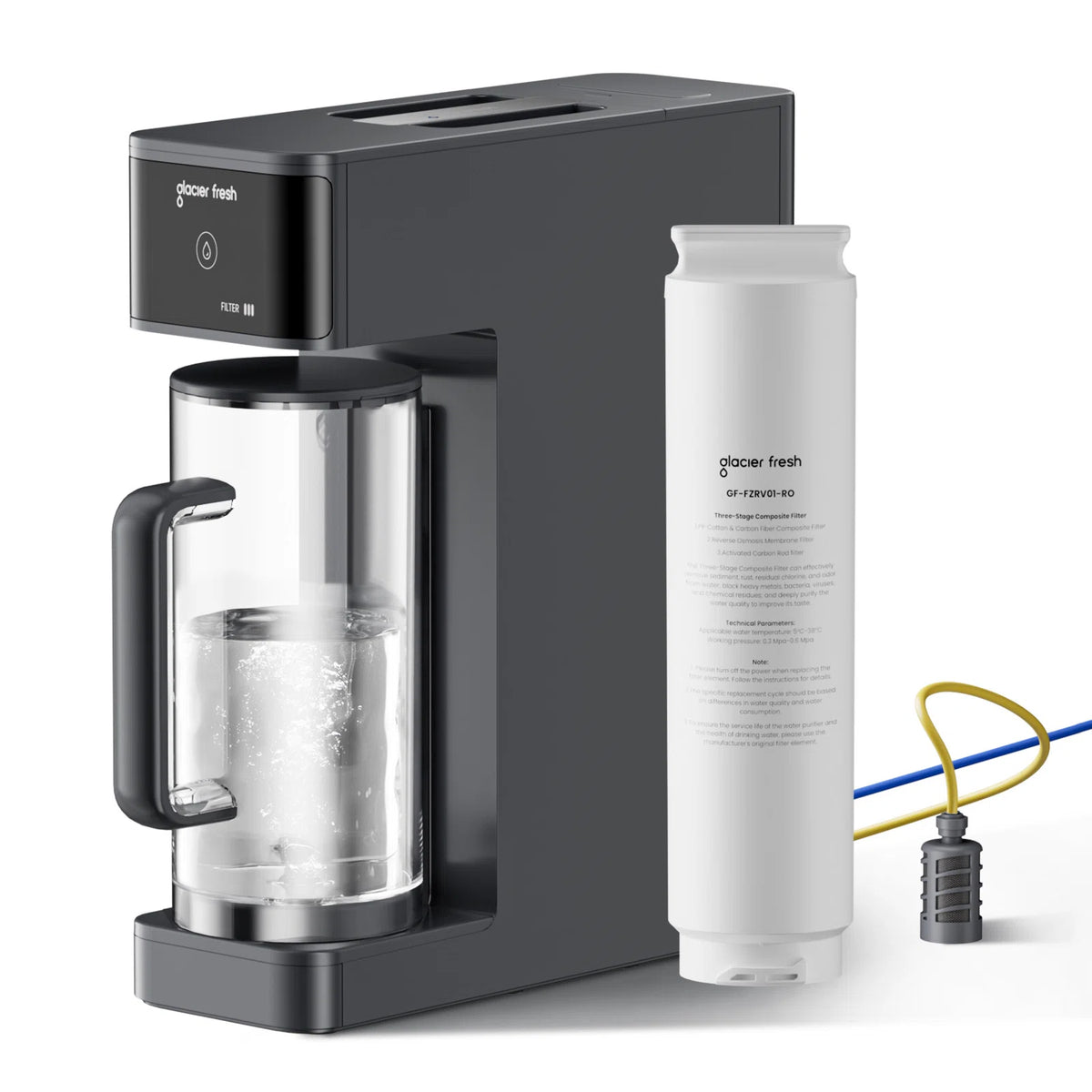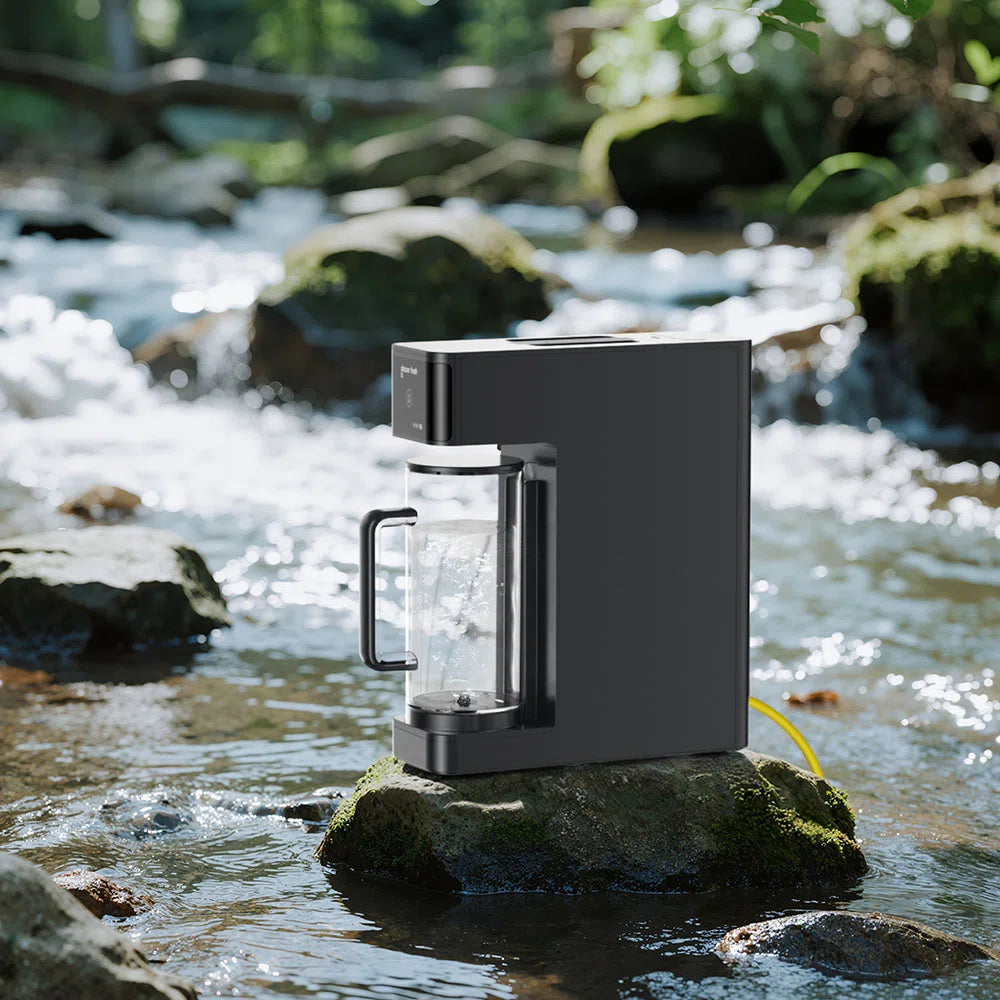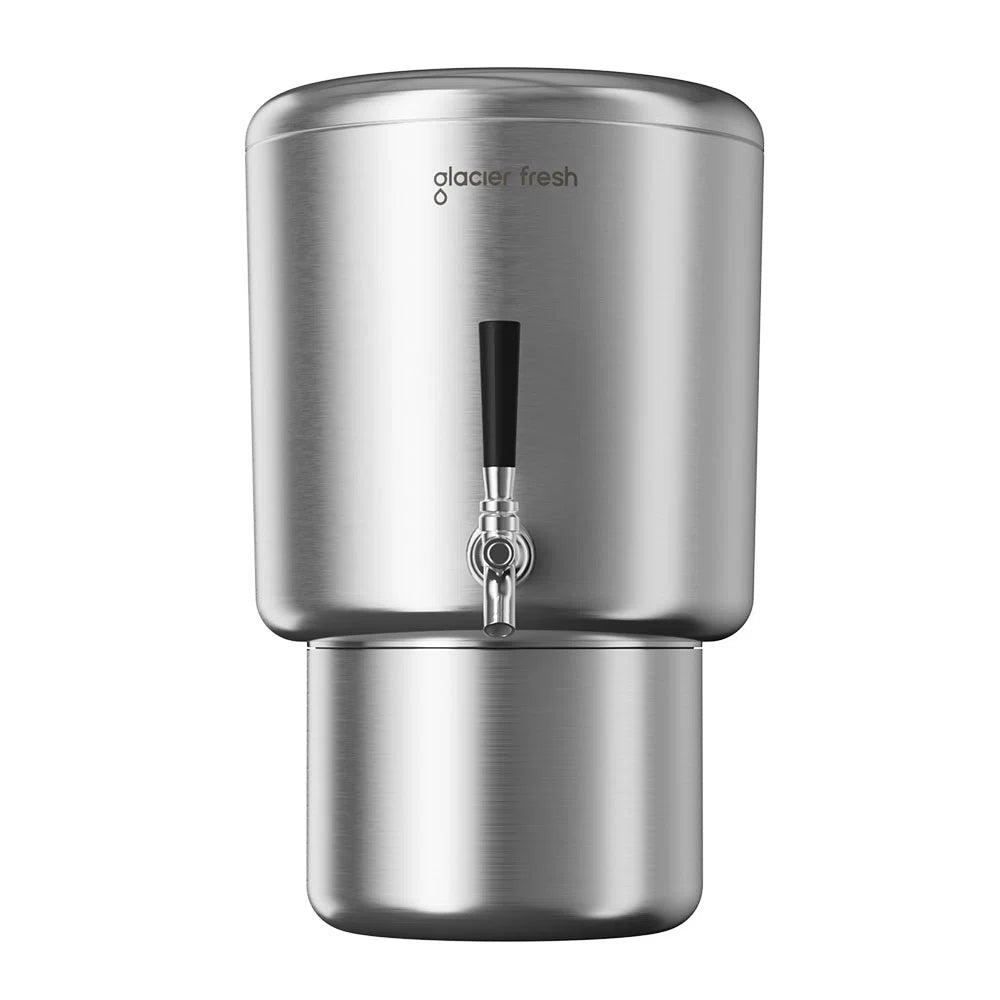Table of Contents:
Understanding the needs of immune-compromised individuals
What contaminants pose the greatest risk?
Safe and effective water filtration options
Combining filtration methods for maximum protection
Additional considerations for immune-compromised individuals
Conclusion
Clean, safe drinking water is fundamental for everyone, but it’s especially critical for immune-compromised individuals. The risk of waterborne contaminants becomes a significant concern if you have a weakened immune system due to a chronic illness, cancer treatments, or other medical conditions. In this blog, we’ll explore the best water filtration systems to ensure you have access to clean, purified water that supports your health.
Understanding the needs of immune-compromised individuals

Immune-compromised individuals are those whose immune systems are weakened due to various factors. This includes people with chronic illnesses (such as diabetes or HIV), cancer patients undergoing chemotherapy, organ transplant recipients on immunosuppressive drugs, or the elderly and infants. These individuals are more vulnerable to infections caused by harmful microorganisms in contaminated water.
Even small exposures to bacteria, viruses, and parasites in water can lead to serious health complications for someone with a compromised immune system, making safe water filtration a top priority.
What contaminants pose the greatest risk?
While clean drinking water is essential for everyone, the risk of contamination is far more serious for those with weakened immune systems. Common contaminants that can harm immune-compromised individuals include:
Bacteria, viruses, and protozoa
Waterborne pathogens such as Giardia, Cryptosporidium, and Legionella can cause severe gastrointestinal and respiratory infections. For someone with a weakened immune system, these infections can lead to more severe health issues, such as prolonged illness or hospitalization.
Heavy metals
Untreated water can contain contaminants like lead, arsenic, and mercury, especially in areas with aging infrastructure. Long-term exposure to these toxins can impair the immune system, damage organs, and increase the risk of chronic diseases.
Chemical contaminants
Substances like chlorine, pesticides, and pharmaceutical residues are often found in tap water. These chemicals can interfere with immune function and have long-term health consequences for people with compromised immunity.
Chlorine and chloramine
While chlorinating water helps prevent microbial growth, residual chlorine or chloramine in the water can harm individuals with sensitive immune systems. For example, high chlorine levels can aggravate skin conditions or cause respiratory issues.
Safe and effective water filtration options
Fortunately, several filtration systems can remove or reduce these harmful contaminants from drinking water. Let’s dive into the most effective options for immune-compromised individuals:
Reverse osmosis (RO) systems
Reverse osmosis system is one of the most effective methods for removing a wide range of contaminants, including bacteria, viruses, heavy metals, and chemicals. The process involves pushing water through a semi-permeable membrane that filters out unwanted substances.
Benefits:
- Removes up to 99% of bacteria, viruses, heavy metals, and chemicals.
- Ideal for highly contaminated water sources.
Limitations:
- RO systems can waste a significant amount of water in the filtration process.
- They often remove beneficial minerals, meaning the water may need remineralization.
UV water purifiers
UV purifiers use ultraviolet light to kill harmful microorganisms like bacteria, viruses, and protozoa. This method effectively eliminates pathogens, making it a good choice for immune-compromised individuals who are most at risk from waterborne diseases.
Benefits:
- Effectively kills bacteria, viruses, and protozoa without chemicals.
- Maintains the natural mineral content of water.
Limitations:
- Does not remove chemical contaminants or heavy metals.
- Needs electricity to function and can be expensive to operate.
Activated carbon filters
Activated carbon filters like water pitcher filters are widely used to improve water taste and odor. These filters are excellent for removing chlorine, pesticides, and volatile organic compounds (VOCs) from water. While they don't remove pathogens or heavy metals, they effectively remove many harmful chemicals.
Benefits:
- Improves water taste and odor by removing chlorine and chemicals.
- Affordable and easy to maintain.
Limitations:
- Does not remove bacteria, viruses, or heavy metals.
- Needs to be replaced regularly to ensure effectiveness.
Distillation systems
Distillation works by boiling water and then condensing the steam into liquid form, leaving contaminants like heavy metals and chemicals behind. This process removes a wide range of contaminants, including bacteria and viruses.
Benefits:
- Removes most contaminants, including bacteria, viruses, and heavy metals.
- Effective for improving water purity.
Limitations:
- Requires significant energy to operate.
- Removes beneficial minerals from water, which may need to be replaced.
Combining filtration methods for maximum protection
For immune-compromised individuals, combining filtration methods can offer the most comprehensive protection. Many modern water filtration systems use multiple stages of filtration to tackle a variety of contaminants. For example, a system that combines reverse osmosis with activated carbon can thoroughly remove both chemical contaminants and pathogens.
Hybrid Systems are also available, combining UV and reverse osmosis for additional protection against harmful microorganisms and chemicals. Using a multi-stage filtration system is an ideal solution for those with compromised immune systems, as it ensures a higher level of protection against a wide range of contaminants.
Additional considerations for immune-compromised individuals
Water storage and maintenance
To ensure your water stays safe, storing it correctly and maintaining your filtration system is important. Contaminants can re-enter purified water if the filtration system isn’t cleaned regularly or if water is stored improperly. Always follow the manufacturer's recommendations for filter maintenance and cleaning.
Bottled water vs. home filtration
While bottled water may seem convenient, it is not always the best choice for immune-compromised individuals. Many bottled water brands contain harmful chemicals from plastic, and there’s also a risk of contamination during the bottling process. Home filtration systems can provide a continuous supply of purified water that is much more reliable and cost-effective in the long run.
Fluoride and other additives
Some individuals may choose to remove fluoride from their water, especially if concerned about its impact on their health. Many filtration systems, including reverse osmosis and activated carbon, can help reduce fluoride levels in water. If you’re concerned about fluoride, look for a filtration system specifically targeting it.
Conclusion
Access to clean, safe drinking water is a fundamental need for immune-compromised individuals. Choosing the right water filtration system is crucial in minimizing the risk of waterborne contaminants and ensuring your health and safety. Whether you opt for reverse osmosis, UV purifiers, activated carbon, or a combination of these methods, the key is to select a system that addresses your specific water quality needs.
By assessing your water source, considering the contaminants that pose a risk to your health, and choosing a high-quality filtration system, you can significantly reduce the risks associated with drinking contaminated water. Stay vigilant, maintain your filtration system, and prioritize your health—clean water is one of the best ways to protect your immune system and overall well-being. Follow Glacier Fresh to find more water filtration solutions.







